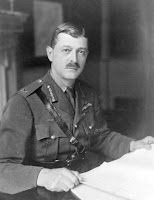General Giulio Douhet (30 May 1869 – 15 February 1930) was an Italian general and air power theorist. He was a key proponent of strategic bombing in aerial warfare. He was a contemporary of the 1920s air warfare advocates Walther Wever, Billy Mitchell and Sir Hugh Trenchard.
In 1921. The same year he completed a hugely influential treatise on strategic bombing titled The Command of the Air and retired from military service soon after Douhet’s theories on airpower have had a lasting effect on airpower employment.
The major premise of Douhet’s theory was his belief that during the war, a quick victory could be won by early air attack on the enemy’s vital centers, while surface forces worked to contain the enemy on the ground. Douhet differed from other prominent early theorists by proposing that civilian populations be directly targeted as part of the air campaign.
Key Aspects of Douhet’s Theories:
- Major Assumptions
- Thoughts on Targeting
- Thoughts on Air Exploitation
- Airpower is inherently offensive; the bomber will always get through
- All future wars will be total wars
- Civilian morale can be diminished by direct attack
- The dominance of the defensive form of ground warfare is permanent
Thoughts on Targeting:
The first step is command of the air; the next priority is destroying vital centers and civilian moral targets.
Thoughts on Air Exploitation:
Once command of the air is won, it must be used to punish the civilians, so that they will coerce their own government to come to terms in order to end the suffering. This will happen so rapidly that total suffering will be less than that experienced in the trenches.
Implications of Douhet’s Theories:
- Organization for War
- Role of Other Armed Forces
- Force Structure
- Technology Requirements
Organization for War
In order to bring about victory over the enemy before your own civil morale collapses, you must organize airpower under a separate air force.
Roles of Other Armed Forces
Other armed forces will only stand on the defensive until the air force offensive has been decisive.
Force Structure
The army and navy will be structured to achieve economy of force. All the mass possible will be built into the air force.
Technology Requirements
Only one type of airplane is required—the battle plane. It will be of moderate speed, long range, and heavily armored for self-protection. If escort protection is required, battle planes will be made part of the strike package, armed only with self-defensive weapons. Everything not put into the battle plan is a diversion that weakens the main effort and reduces the probability of success. Battles plane would have a combination of high-explosive, incendiary, and gas bombs to have a synergistic effect.
Influence in Italy
His influence on Italy was quite significant, in that he helped bring about the development of an air ministry and separate air force under Mussolini.Colonel Billy Mitchell shared many of Douhet’s beliefs and also corresponded with Count Caproni (who was closely associated with Douhet in the articulation of his theory) on airpower employment. The communication between many of the early theorists promoted a vital dialogue in formulating ideas on airpower.
Influence on the United States
- His influence on the United States was somewhat indirect. Douhet’s contemporary, Count Caproni, was trying hard to sell his bomber to the U.S. Caproni was also closely associated with Douhet in the articulation of his theory. Colonel Edgar Gorrell, an early advocate of strategic bombing, met with Caproni and later had an influence on the initial development of the Air Service Strategic Bombing Theory.
- Several U.S. airpower theorists shared Douhet’s view on strategic bombardment. It can be assumed that Douhet had an influence in the formulation of airpower thought during the period. Portions of his book Command Of The Air were translated and incorporated into the Air Corps Tactical School (ACTS) curriculum. The ACTS would produce the airpower architects of the strategic bombing campaign of World War II.



.jpg)

No comments:
Post a Comment